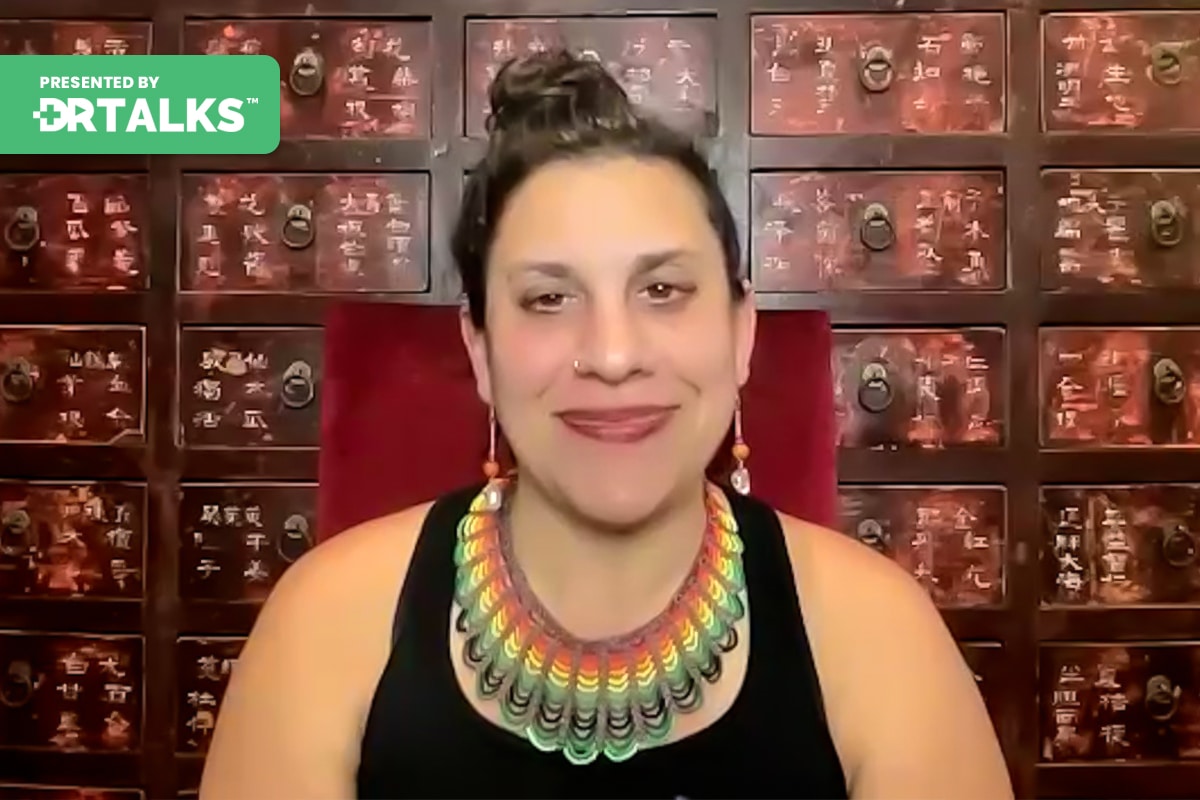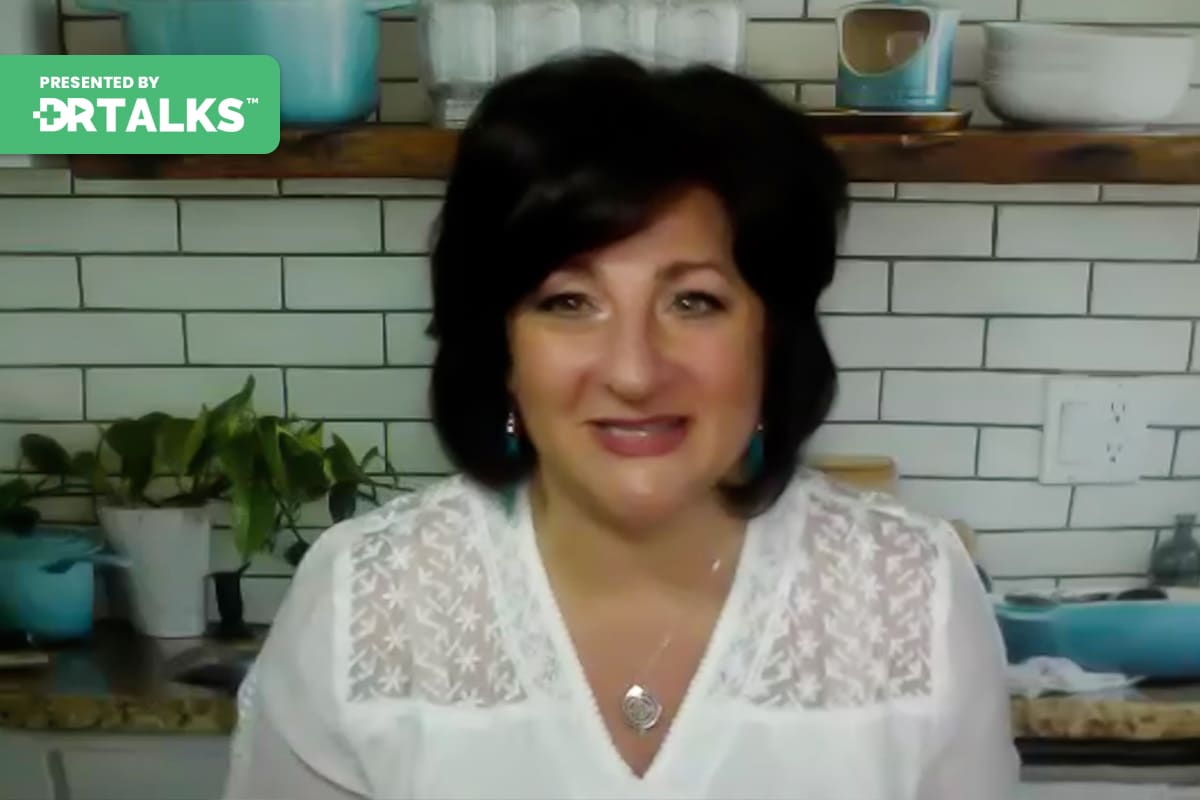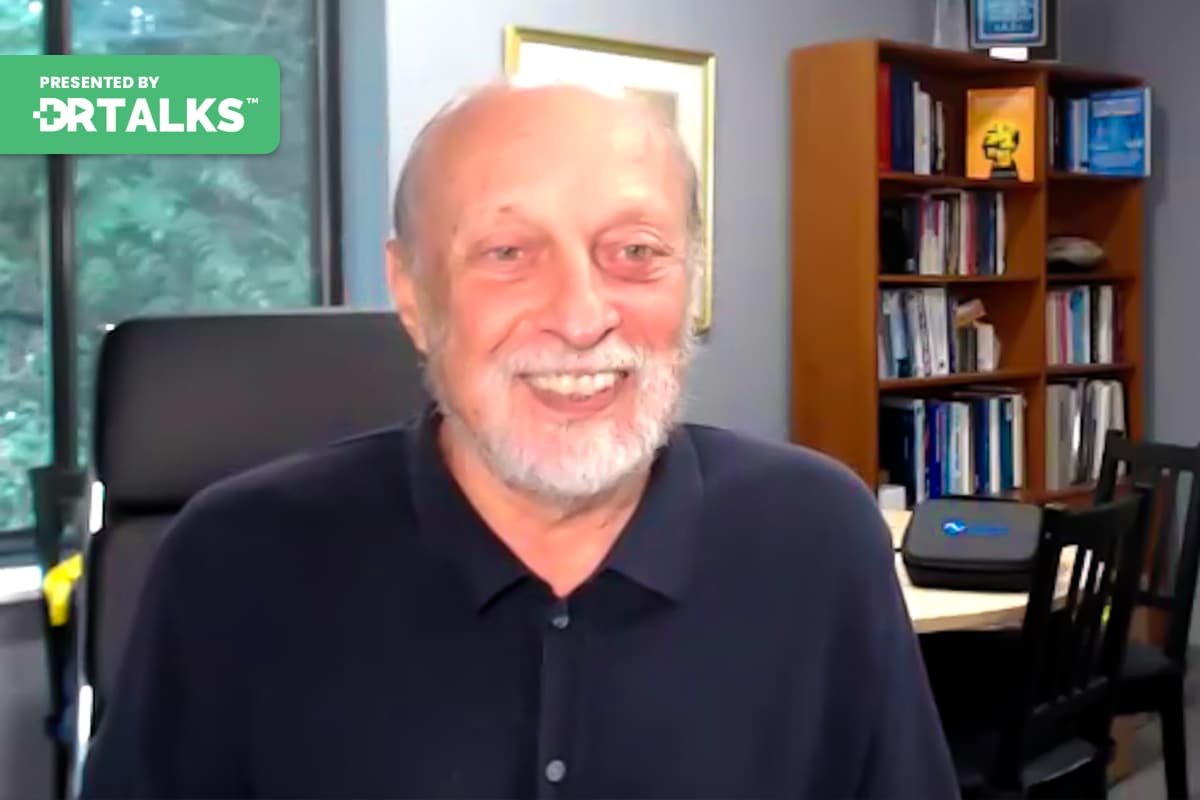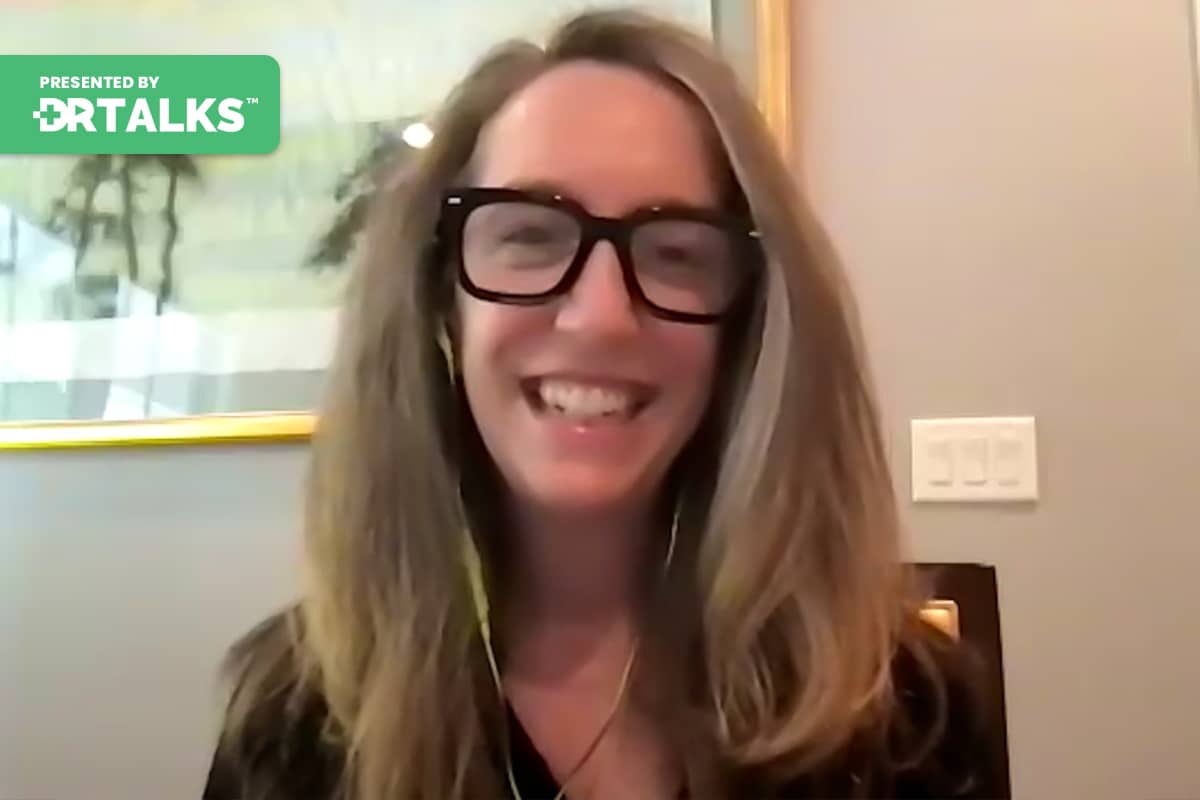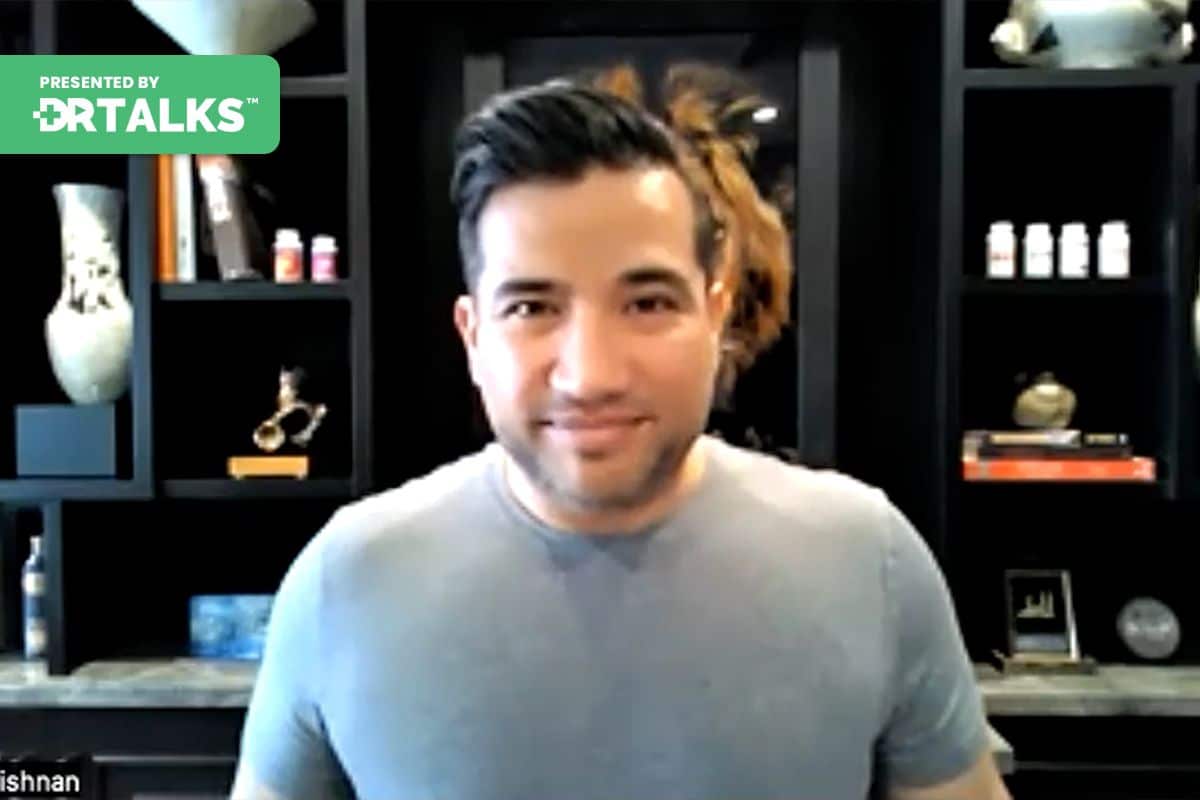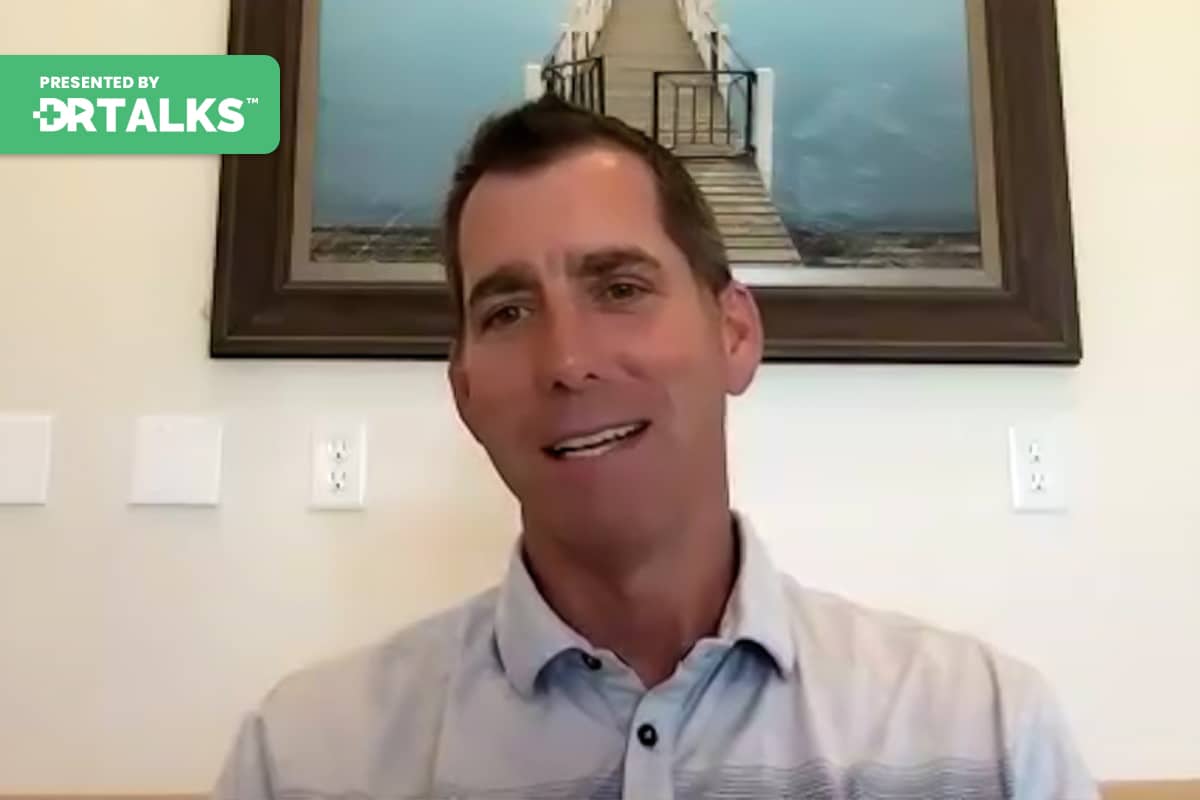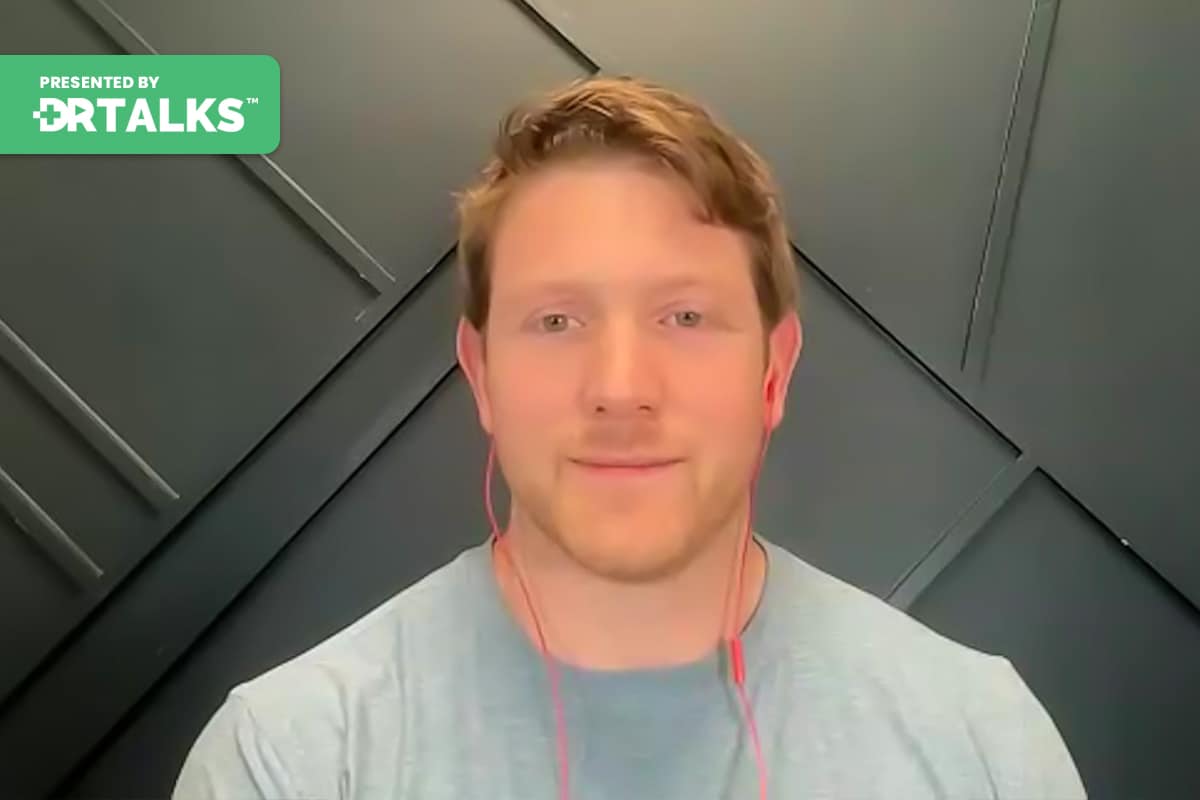Join the discussion below
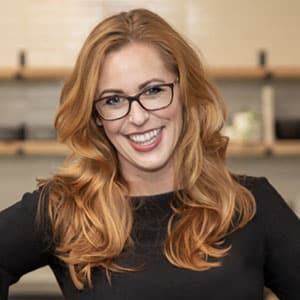
Sinclair Kennally, CNHP, CNC, is a former chronic illness survivor turned health activist. As an award-winning expert on chronic digestive illnesses, CEO of DetoxRejuveNation.com, and host of Your Health Reset Podcast, she's on a mission to help people discover the real reasons behind their health issues, and take their power... Read More
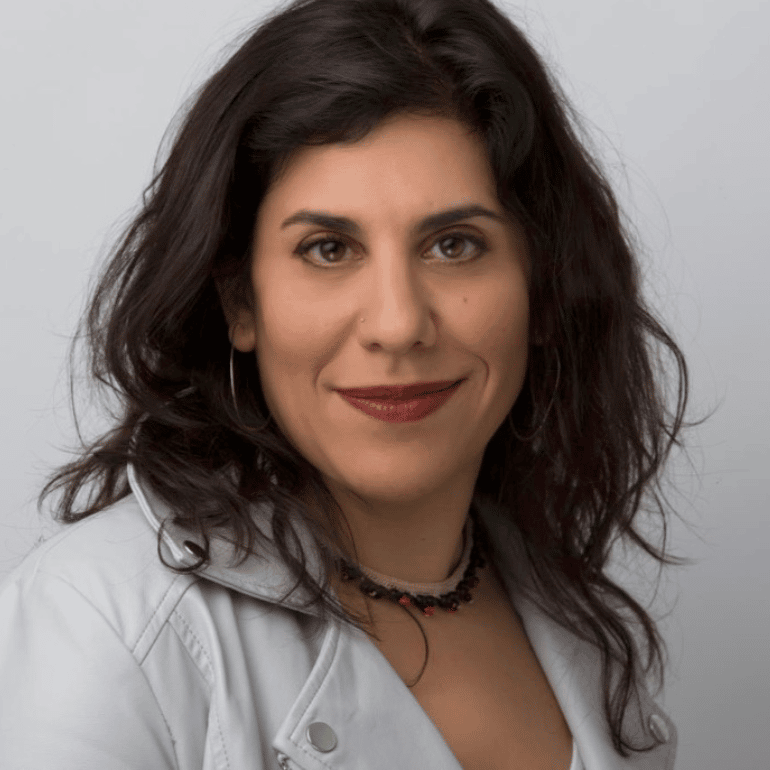
Maya Shetreat, MD is a neurologist, herbalist, urban farmer, and author of The Dirt Cure. She has been featured in the New York Times, The Telegraph, NPR, Sky News, The Dr. Oz Show and more. Dr. Maya is the founder of the Terrain Institute, where she teaches Terrain Medicine™, earth-based... Read More
- Uncover hidden stressors that significantly impact your gut health
- Delve into the potent healing properties of master plants for digestive wellness
- Learn to address and resolve chronic gut conditions by targeting their root causes
- This video is part of the Reversing Chronic Gut Conditions Summit
Sinclair Kennally, CNHP, CNC
Welcome back. We are continuing our conversation on “Reversing Chronic Gut Conditions.” I am your host, Sinclair Kennally. Today I am joined by the wonderful Dr. Maya Shetreat. She is phenomenal. She has quite a wide range of skill sets and contributions to make in this world. Not the least of which is her latest book, which is called “The Master Plant Experience.” Today we are going to do a deep dive because she can speak to many topics as a neurologist, an MD, an herbalist, an ancient astrologer, and the author of “The Dirt Cure.” She is also the founder of Quantum Drops; we are going to talk about what that is and why that might matter to you, as well as The Terrain Institute, so you know that there is going to be a lot of overlap between what she cares about, what I care about, and what we are both here to help support you in exploring as you take back power over your own health journey. Welcome, Dr. Maya. It is so great to have you here.
Maya Shetreat, MD
Thank you so much for having me.
Sinclair Kennally, CNHP, CNC
Awesome. Well, I want to make sure that we get somebody in who is really credible for this event and who can speak to taking your health back into your own hands. What is this personal power journey like for people who have been chronically ill, perhaps for quite some time, who can really speak with grace and with depth to the layers that happen to the body and the consciousness when you have perhaps survived some trauma, life trauma, as well as trauma to the body? What does that mean when we are really experiencing ourselves as these multi-layered conscious beings? What does that mean for our healing process and our healing exploration? The first question I would like to ask you to help ground our listeners who might not be familiar with your work is: could you tell us a little bit about your journey and how you ended up being an expert at these quite diverse layers of healing?
Maya Shetreat, MD
Yes. I think it is actually probably pretty relevant to what a lot of people may be thinking about in terms of their own experiences. Because I think people hear, Okay, you are a neurologist, and I am an adult and pediatric neurologist, conventionally trained. I did the whole medical route of training, and then I did pediatrics, and then I did neurology. I did the whole gamut. I am a big science nerd. I love science. I love learning about mitochondria, the microbiome, and the whole beautiful science of relationships and community, which is systems biology. I am really starting to understand that. I realized there were parts of me that were not really getting expressed in this mainstream way of practicing. I was always, and this probably would not surprise at least some people if they are familiar with my work at all, but I was always like the resident who was asking questions that made my attendings angry, and it was not because I did not think they were controversial, but I would say, Why does it seem like all the patients here have immune dysfunction on the pediatrics floor, every patient, the seizure patient, the Crohn’s patient? I would say, Everyone here is dealing with immune dysfunction; why is that? It was so controversial to ask those questions.
There was a point in time, for me, when we talked about this before we started recording: that there are these, what I call, provocations. People call them spiritual awakenings; they call them initiations; and they can be all of those things, but for me, I call them provocations because they provoke us out of our comfortable narratives. When I say comfortable, I do not really mean comfortable like it is so yummy and wonderful; it is more familiar and therefore comfortable, even if it is not very pleasant. For me, there were things that were pleasant and things that were not pleasant. But my son, my youngest son—I have three children that I had over the course of my medical training—got sick, and that kind of extracted me from all the kind of, I will say, brainwashing that went into my medical training. Part of medical training is thinking in a very particular way in a very particular paradigm, which is like understanding the standard of care and the way everybody thinks in the medical world.
It pulled me out of that, and I started studying, learning, and going into the medical literature, ultimately practicing integrative medicine. I became an herbalist, and I really looked at diet, nutrition, and supplements in neurology. At the time, I think I was one of the very few, if not the only, people who were really doing that, especially in pediatric neurology. Then some years later, this son, my youngest son, got sick again, and that ended up sending me on a trip to Ecuador. I am going to skip a lot of the details in that. But I was really looking for healing for my son, and in the process, it ended up being a huge education for me and actually a healing process for me in my own life. That really ended up making me question a lot about the life I was living and the narratives that I was living into. It ended up taking me on a whole journey to learning with indigenous teachers, to studying mysticism, and to this whole much richer way of looking at the world, which for me is science as a language that is one of many that describes mystery. I love science. I think astrology, indigenous science, and mythology are all ways to engage with mystery, and I think one of the hardest parts of the human condition is really the unknown. It is engaging with the unknown and being comfortable with that discomfort around knowing. These languages are so beautiful because they give us ways of navigating and road maps through the unknown, but we cannot erase the unknown; it is part of the human condition. That is kind of my journey that took me into creating “The Terrain Institute,” which took me to learning about master plants, astrology, and all these different things. For me, I think what I would just kind of do to end that story is break out of a lot of narratives. I published a book with Simon & Schuster in 2016, and I was on the Dr. Oz Show, and I did the New York Times thing, and all of that stuff, and I was advised, Great, this is the thing you should be doing now, and it is not that I am not doing that; everything I am doing is building on the next thing. But what I realized is that when we ignore parts of ourselves that are authentic and important, we are going to feel bad. I mean, we talked about this a little bit, but this idea of feeling lonely—a lot of my work revolves around this sense of existential loneliness— Existential loneliness occurs when we are not in an honest, authentic relationship with ourselves, first and foremost.
Sinclair Kennally, CNHP, CNC
Let us talk about that for a second because you just said a mouthful, and I want to make sure that we get a chance to unpack it. So many people that come through our practice and in our courses, I think, can relate to what you just said, this existential loneliness. One of the first places I see it show up is in the gut and in the terrain of the microbiome. We have this amazing intuition center in the gut, and I am so excited to talk to you about this today because I know that you can speak to this as an MD and also at the spiritual level and the energetic center level. Could you share with us any insights you have in the way you think about persistent chronic gut conditions and the relationship there to these underlying issues that have not been addressed, this existential loneliness, and any other pieces that you want to include in that?
Maya Shetreat, MD
Yes. Well, the first thing that comes to mind is actually neurons. We have neurons in our gut, obviously, interneurons, and we have neurons in our brain. When we feel depressed or lonely, our neurons become less connected. Our neurons literally mirror our loneliness; they express loneliness. There are fewer connections between neurons, and that is really important because we are made of connections; we only exist as connections. We are not a thing; we are a universe. We are filled with billions of organisms and mitochondria, which actually evolved from bacteria long ago. But our mitochondria, our partners in our cells that were not eukaryotes, helped us evolve, and we have this whole community within us. In fact, another example of that loneliness is when our cells are in danger and our mitochondria change. Healthy, happy, safe-feeling cells will have mitochondria that are branched and long; they look like spaghetti, and they are in communication with each other. When a cell is in danger mode, mitochondria go into a meatball configuration, and this is what mitochondrial researchers call it. I would love to take credit for this, but it is not my words; I will use the words of Dr. Robert Navy, a dear friend of mine and an amazing mitochondrial researcher. It is like meatballs and spaghetti. But you can imagine a meatball; it is not branched out, it is not touching the other mitochondria, and they are not exchanging information, they are not exchanging nutrients, they are not detoxifying as well, they are isolated. Again, everything is a mirror of everything else—our neurons, our mitochondria. Everyone knows that when we are in danger existentially, it does not have to be like there is a lion in the room; we feel like there is a lion in the room, and this goes back to trauma, big T trauma, and small T trauma, which we can talk about. Both of which I think are really important. Our cells change, our neurons change, and our mitochondria change, and in our guts, our flora, our mitochondria, and our microbial community also change so that certain flora become more predominant and others less so. We have less diversity, and diversity is the name of the game when you want to have a healthy gut. The story is that loneliness and isolation exist on every level for us: in our guts, in our brains, in our bodies, and in cells.
Part of the reason this happens is because our cells have memories. Now, this sounds like a very woo-woo thing, but it is absolutely scientific; cellular memory is a thing. Now you understand why, when we talk about mitochondrial configuration, cellular memory is a thing. Because when the cell is in what we call cell danger mode, it is going to be more focused on protection than it is on growth, optimal function, and well-being. This cellular memory—what is really interesting about it—is that it is impacted; the cell is impacted; the memory could be a physical memory; it could be an emotional memory; it could be a spiritual memory; it could be a lineage memory; it could be epigenetic.
But the cell does not differentiate in the way it expresses distress; it will express it as physical or mental distress. We have very real physical symptoms and diseases or mental health conditions that are absolutely real. It is not like this is just your cellular memory; it is real, and this is what causes symptoms. But the cell might have been experiencing a trauma that is emotional or more spiritual, like being bullied by a teacher in fifth grade. That changes the way your cells operate, and your cells remember that. Then sometimes it is really hard for us to break out of that memory; it is hard to shift out of that cell danger. We can end up in that situation for a very long time. That is the root of chronic disease, and it is happening at every level—the gut, the brain, and the body. That is how we get stuck in long-term chronic illness.
Sinclair Kennally, CNHP, CNC
Wow. What a beautiful way to summarize that. So many people gloss over this piece and talk about the cell danger response. The great work of Dr. Robert Naviaux is phenomenally interesting, and it is really only a few years old. But all you hear people talk about is how the mitochondria shut down, not really about the cellular memory piece and how that plays a part. It is so interesting because I know a lot of our listeners are going to be feeling validated right now, and some of our listeners are just taking control over their health journey for the first time, like, Okay, I am going to take it out of the white coats hands and into my own; I am going to go off and explore. Then some people are, as I lovingly call them, my summit junkies; they are inhaling podcasts and summits; they are like, What else do you have, ma’am? Is there one gem I can hear today that I have not heard before? They are taking total responsibility, whatever it takes. I am on this journey until I feel like myself again. What would you say to those two listeners as they explore this concept for themselves and how it might apply to their chronic gut conditions?
Maya Shetreat, MD
Yes. I mean, I would say maybe it is not even about feeling like yourself again, but maybe it is about emerging as who you are right now, feeling well—absolutely, that is the goal—but also being ready for it and understanding that this is a transformative experience. Going through a profound physical or mental health challenge is transformative; it is meant to be transformative. The goal is to not just get better but to really accept yourself and look at the things that are hard to find pleasure in, even when you are struggling, wherever you can find them. I am not being glib, and I am not saying this is an easy thing, but it takes practice to be like, I am just going to appreciate the sunset today, or I am going to just spend a little time with someone that I enjoy, or whatever it is. It is understanding that it is not just about getting to the other side; it is about living as richly as possible on that journey as well.
Sinclair Kennally, CNHP, CNC
It is really beautifully said. I remember being very chronically ill and having no energy to live my life, feeling extremely fragile and porous. One of the few things I could do as a meditative practice at that time, having been somebody who had already gone through all the certifications in the training for “Rapid Change Therapy in Systematic Release,” and I really felt I knew my sh*t, and then I was so sick I could not use any of it, was like, This is a very interesting initiation.
I remember one thing I could do was look out the window as I was sitting there on my couch in a deep depression, sunk in the middle of my symptoms, and I could meditate on the plants outside because they had no resistance to them, and I could just notice how healthy they were, how they proliferated their leaves, and how they were literally keeping me company right when I felt the loneliest. I felt like I would be left for dead by God, but I could feel the aliveness of nature around me even just through the window and be like, Okay, I am here, and this part is safe right now. I know so much of your work is about plant wisdom. I really want to give you a chance to talk about that today, what that means to you, and how you are exploring it as a healing tool for people in this society today.
Maya Shetreat, MD
Yes. Your story is so beautifully said. I know that the experience—you can talk about it now in the fullness of the experience—but a lot of us have gone through physical, mental, emotional, or spiritual experiences that really took us into the underworld, and we do not know if we are going to emerge, but we do generally emerge somewhere eventually. You just touched on such a beautiful way that plants support us. One of the things that I think is the remedy for this existential loneliness that we experience, some of which is us feeling alienated from our own bodies, especially when we are sick, is that we get a lot of blame. Or I hear people talk about this being like the war on models, the war on bugs, the war on cancer—I mean, these things are like we are at war with ourselves in a sense, and I call that the us versus them model. We have it in a lot of ways, like the war on drugs, the war on weed—everything is like a war.
Sinclair Kennally, CNHP, CNC
Hashtag f*ck cancer, and it was like, Whoa, wait a minute, whoa, you are talking about your body here right now.
Maya Shetreat, MD
It is no wonder we feel so disconnected and alienated from ourselves and each other because we are in this us versus them paradigm. That is totally inaccurate, I might add. I mean, what we know about our bodies, about the natural world, about nature, plants, and even microbes is that we are made up of microbes; we are all part of everything else; there is no part of us. We do not exist as a thing that is static. I am not Maya, and you are not Sinclair. Like something that says today versus tomorrow, we are different. Part of that is because we are actually made of relationships. We are made of the relationships that we have with microbes, and we are made of the relationships that we have with our mitochondria. We are made up of the relationships we have with our food and what we ingest, how we spend our time, the people we surround ourselves with, and the information we consume. Do we listen to music? Do we dance, do we, whatever—I mean, what poetry do we read? I do not know; we are made of all of that. This idea of these static beings is the only way we can really think about us versus them and have it make any sense, but it really is not the case.
To your point about this, how can the plants heal us? First of all, just understand that plants are not things; they are not commodities; they are not resources; and they are not just here for us; they are like family; they have their own lineage; and they are actually a lot older than we are; they have been around a lot longer than we have been; and they have wisdom. One of the chapters in my book is called “Plants are Beings,” and it is really all about the science around plant consciousness and how we think of plants as beings. We are like the only ones; we and animals have brains, and we are the only ones with consciousness. Well, if we think about plants as being upside-down people, okay, I put that in quotes, their neural networks are their root systems, and they have memories, they make plans, they partner, they know their own family, and they are very similar in many ways, only they are not even constricted by a brain, I mean, by a skull. They do not need to have a brain in a skull; they have a giant neural network. In some cases, there is an Aspen in Utah, I think, that has over a hundred miles of root system and is very famous.
Plants are very intelligent, and plants communicate through their chemists, actually, and all of the alkaloids, all of the fragrances, and all of those things that we experience. Plants are very skilled chemists; they are much more skilled and much more rapid in their abilities. They can draw a predator from very far away and bring it to us to eat a pest that is attacking the plant. Now, why am I saying all of this? First of all, because it is amazing, and I think that wonder and awe are their own kind of medicine, but also because when we understand that we have this kind of support that is all around us, and you described something so beautiful when you talked about how you could look out the window and feel the aliveness of the plants, that was a healing medicine to you. There is so much interesting data on people who are in the hospital who are looking at a brick wall out the window or who can see trees. The data shows that if you see trees, you will have fewer surgical complications, fewer pain complaints, need fewer post-operative medicines, and be discharged sooner. I mean, there is very impressive data just from looking out the window at a tree. It is so powerful to know that this is before any ingestion; this is before anything else. Simply being in the presence, being able to visualize and feel that aliveness, we are supported by the plants. How much more so, then, could we be supported under the right circumstances when we ingest a plant as an herbal medicine or in some other capacity?
One of the ways that I have studied really deeply is by working with master plants, which are plants that are very powerful and neuroactive and include psychedelic plants but are not limited to psychedelic plants. Master plants include cacao and coffee. Just as an example, tobacco is a master plant that is kind of controversial. I write about it in my book because tobacco is a very powerful, fascinating, and sacred medicine that we have gotten into a complicated relationship with. Then there are these psychedelic plants that have kind of hit the headlines a lot lately, like psilocybin mushrooms, ayahuasca, San Pedro cactus, and iboga. I wrote a book about these plants and all of the things that we are really talking about in terms of how they can support us in this human condition that we are in right now of existential loneliness.
Sinclair Kennally, CNHP, CNC
Wow. I want to give you a chance to mythbust a little bit about this because I know there is a little bit of sensationalism that comes with the concept of master plants. You put it very beautifully about what has hit the headlines lately. I really want to give our audience, who is on the hunt for solutions for their chronic gut conditions and wants to explore avenues that maybe have not been previously tried upon. Of course, we are not going to be talking about probiotics here, like, go out and buy some probiotics; that is covered by somebody else. Let us explore something different and new today that maybe you have not been exposed to before. To do that, let us unpack a little bit more about what you mean by these master plants and how they can help people with chronic conditions. I would love for you to mythbust along the way. Are there any outdated conceptions that you think are harming this potential relationship that people can have?
Maya Shetreat, MD
Yes. The first thing I will say is that I am not recommending people run out and do illegal activities. We do have a lot of decriminalization happening across the United States and around the world. It is important to know if you are in a place where it is decriminalized, etc. There are also ways to engage that are legal throughout the country as well. Then to know that not everything psychedelic is a big psychedelic trip; not everything is this microdosing experience where you are altered in these really significant ways. You can also microdose, and you can also contradose. We can talk about that. But I just want to kind of frame it that way because there are a lot of people who just know that the hippies did that in their 60s, and a lot of people went crazy. I think it is a concern for a lot of people, especially those who are around at that time, have it, think it is illegal, etc. I just want to frame it like that.
In terms of what the data is showing, let us just start there because there is sensationalism and definitely, I think, a desire on the part of people who are big psychedelic proponents to kind of make it sound like psychedelics can do no wrong. I am definitely a measured advocate. I told you before we got on that I kind of got pulled into the master plant’s psychedelic world, a little bit kicking and screaming. I was not rah-rah about it, but I think that there is tremendous potential for benefit. But what I want to start by saying is that these are powerful tools; they are powerful plants, and we do not always know how to have a good relationship with power. Some examples of powerful master plants are, as we talked about, tobacco. Tobacco is used around the world by shamans and sacred practitioners in ceremonial capacities. It is considered one of the most sacred medicines in my book. I talk about the fact that one of the stories about tobacco is that humans were created by the tobacco spirit so that we could honor tobacco. That was the whole reason humans were created in this one kind of creation myth.
That is how powerful and important that plant is, and yet look at how we engage with tobacco. Similar to the opium poppy, which is a beautiful, very medicinal master plant, when you take it into opioids and fentanyl and all these things, it is like, Well, that is not a good thing, but that is not the plant, which is like how we are interacting. Why I wrote a book and why I talk about it is because the most important thing is our relationship. Going back to relationship, always going back to relationship, our relationship with the plant, our relationship coming with reverence, humility, care, and consideration, that is the foundation. Science-wise, we know that there are tremendous studies that actually date back to the 1950s, but many are current. Right now, academic institutions—any top academic institution you can think of—have psychedelic research going on right now. I mean, Harvard, Johns Hopkins, NYU. I mean, if you go to my website, you will see we have a lot of interviews with some of the top scientists in the world, overseas, everywhere. This research is happening everywhere. What we are seeing is addiction of any kind, whether it is tobacco or alcohol all the way to heroin and methamphetamine, and other things for OCD, major depression, eating disorders, PTSD, and sexual trauma, just to name a few. There is data, growing data, and sometimes very impressive data that shows that one dose with the right support before, during, and after is a very important part.
This is not like I am not saying going out into nature and tripping with mushrooms could not be an incredibly healing experience; many people do experience healing and wonderful things that way. I am not saying that; what I am saying is that in the scientific literature and in the studies, all of the benefits are in the context of support before, during, and after therapeutic support. Okay. But it is not just the therapy that is doing it right, and it is not necessarily just the master plant or the psychedelic that is doing it; it is this combination. There is now growing data on microdosing around things like dementia, depression, and pain syndromes like migraines, cluster headaches, and trigeminal neuralgia; they are looking at things like Crohn’s and colitis; there is a tremendous, growing amount of literature. Microdosing is a little more difficult to study because of its legality. If you want to study psychedelics in a microdose environment, you can do the support before the person comes in for five hours, seven hours, whatever it is, and has the experience; they do not leave with any psychedelic doses of any kind, and then they come back for follow-up. With microdosing, you can live your life. Microdosing is a sub-psychedelic experience where you can go to work, you can parent, you can do everything, and you might feel slightly different, but it is not altering you so that you cannot function. What that means is that you are going to go to the hospital for your dose and sit there for five hours just for microdosing, and you do not even really feel altered, like nobody is going to do that. Therefore, the studies are fewer, but we are seeing really interesting benefits with microdosing, and we have a lot of data. In terms of the myth-busting, I think there are a lot of narratives around psychedelics, and they are not all completely wrong; it is just, again, how are we going to navigate this in a respectful, reverent, humble, and careful way?
Sinclair Kennally, CNHP, CNC
Those are some beautiful keywords. You are just going to be respectful, reverent, humble, and curious.
Maya Shetreat, MD
It is really great.
Sinclair Kennally, CNHP, CNC
Okay. I know that you have been experimenting and even created a way for people to experience master plant information in a legal and safe way with your Quantum drops. Could you explain what that means?
Maya Shetreat, MD
Sure. I grow some of the master plants not for my own ingestion but just to be in a relationship with them and learn from them. I am a big believer that tending is a really important part of healing and living a purposeful life. For me, part of how I learn from the plants is by caring for them. I have some funny stories about it in my book. But in the process of doing this tending, the plants kind of transmit information, if I could say that. This is actually something that indigenous healers talk about quite a bit. There is a concept or a practice called Ikaros, which are songs that are sung by the Ayahuascero by the ceremonial healers in Ayahuasca ceremonies. And the Ikaros are transmissions from the plant, musical transmissions that come through the Ayahuascero, and they sing them, and they say basically that this is as powerful and as potent as ingesting the plant; you do not even have to ingest the plant. If you hear the Ikaros, then the plant is doing its work on you in a very potent way. And if people have ever experienced ikaros, they are very powerful and will change how they feel completely. That is vibrational medicine.
We are learning now, kind of in the whole quantum medicine and quantum biology world, that sound, light, and a lot of other things are much more potent medicines than we ever thought they were. I do not think we ever thought they were, but modern medicine has disregarded them. I mean, indigenous science and indigenous medicine are always considered vibrational medicine and quantum medicine to be important. I talk quite a lot about that in my book. But in this case, these quantum drops are made with the plants but not from the plants. Meaning I do not harvest a big chunk of the Ayahuasca and grind it up and cook it and make it integrate; no, the way that it is done is in ceremony with the plant at certain times of the month and year; the light is in a particular way; and the songs of the plants are actually played during it, where we actually measure and play the music of the plants during this experience of creating the quantum drops and even the place that they are bottled. We have medicine songs being played while they are being bottled; we have prisms in the room; there are rainbows in the room; and there is music in the room. It is very ceremonial from beginning to end. The quantum drops are safe and legal for people who are very sensitive. Some people really find big experiences with psychedelics to be traumatizing to their bodies because they are so drastic and they are very sensitive. If they are in a place of nervous system dysregulation, which a lot of people with gut issues are,
Sinclair Kennally, CNHP, CNC
Hello? Yes.
Maya Shetreat, MD
Anyone who has been through big T trauma and often people with little T trauma, which is many of us, Some people have phenomenal experiences doing a big microdose, but for other people, it is not the approach they feel comfortable with. Sometimes you want to make sure it is legal; sometimes it could be they are pregnant, they are on medications, they have chronic health conditions that might render them really concerned, or maybe they have mental health conditions that preclude taking big doses of psychedelics even in an academic setting.
Quantum drops are something that has the medicine of the plants in a way that is both gentle and potent. Of course, as a doctor, I felt at first working with these that I was like, Is this effective? Is this really going to help people? I started working with it with consent from people who were interested. I did retreats; we did it in person; I did it in a lot of different ways, and the effects were very impressive. The reason I think that is because our bodies are vibrational, and we do not always need a big sledgehammer approach to experience the healing medicine of anything, let alone another person, let alone a plant. I have seen really profound outcomes with the Quantum Drops.
Sinclair Kennally, CNHP, CNC
It is so cool. Where can people find out more information about your work? And how do they continue their own research into using this as a modality in their own exploration and healing?
Maya Shetreat, MD
Yes. The best place to go is always my website, which is drmaya.com. D R M A Y A dot com. I have my book here, which is “The Master Plant Experience”, This is actually a slice of an Ayahuasca vine. That is another way in. On my website, you can actually get the first few chapters for free if you feel like you want to. If you do not want to commit to the whole book, you can always start that way. Everything is there; I have a lot of free resources. My goal is just for people to have the tools to make this journey through Earth School a little more manageable, maybe purposeful, and maybe joyful. That is it.
Sinclair Kennally, CNHP, CNC
It is such a gorgeous way to end this. Thank you so much for sharing your journey today with us, for sharing your wisdom and this whole exploration, for your courage, and for the thoughtful way that you shared this intimate experience. I think it is really eye-opening. I think we need to approach any aspect of any modality of healing with this level of care, with this measured curiosity, respect, humility, and grace, and then that is when the miracles really happen. Thank you so much for being with us today.
Maya Shetreat, MD
Thank you so much for having me; it was a pleasure.
Downloads

